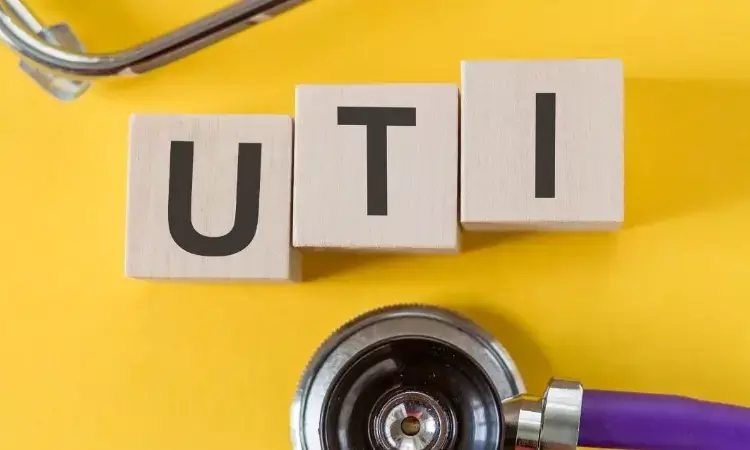- Home
- Medical news & Guidelines
- Anesthesiology
- Cardiology and CTVS
- Critical Care
- Dentistry
- Dermatology
- Diabetes and Endocrinology
- ENT
- Gastroenterology
- Medicine
- Nephrology
- Neurology
- Obstretics-Gynaecology
- Oncology
- Ophthalmology
- Orthopaedics
- Pediatrics-Neonatology
- Psychiatry
- Pulmonology
- Radiology
- Surgery
- Urology
- Laboratory Medicine
- Diet
- Nursing
- Paramedical
- Physiotherapy
- Health news
- Fact Check
- Bone Health Fact Check
- Brain Health Fact Check
- Cancer Related Fact Check
- Child Care Fact Check
- Dental and oral health fact check
- Diabetes and metabolic health fact check
- Diet and Nutrition Fact Check
- Eye and ENT Care Fact Check
- Fitness fact check
- Gut health fact check
- Heart health fact check
- Kidney health fact check
- Medical education fact check
- Men's health fact check
- Respiratory fact check
- Skin and hair care fact check
- Vaccine and Immunization fact check
- Women's health fact check
- AYUSH
- State News
- Andaman and Nicobar Islands
- Andhra Pradesh
- Arunachal Pradesh
- Assam
- Bihar
- Chandigarh
- Chattisgarh
- Dadra and Nagar Haveli
- Daman and Diu
- Delhi
- Goa
- Gujarat
- Haryana
- Himachal Pradesh
- Jammu & Kashmir
- Jharkhand
- Karnataka
- Kerala
- Ladakh
- Lakshadweep
- Madhya Pradesh
- Maharashtra
- Manipur
- Meghalaya
- Mizoram
- Nagaland
- Odisha
- Puducherry
- Punjab
- Rajasthan
- Sikkim
- Tamil Nadu
- Telangana
- Tripura
- Uttar Pradesh
- Uttrakhand
- West Bengal
- Medical Education
- Industry
Fecal microbiota transplantation may reduce incidence of UTI among individuals with recurrent CDI infection

A new research published in the European Journal of Clinical Microbiology and Infectious Diseases shows that fecal microbiota transplantation (FMT) is associated with a considerably lower incidence of urinary tract infections (UTIs) among individuals with recurrent Clostridioides difficile infection (CDI).
UTIs are among the most frequent bacterial illnesses, particularly among the elderly. Because resistance patterns grow with each infection, UTIs provide recurrent therapeutic problems, including antibiotic selection. Clostridium difficile infection is the most frequent nosocomial infection, causing considerable morbidity and mortality, with an estimated 29 000 deaths occurring within 30 days after infection and a high risk of recurrence.
By restoring the natural gut microbiota, fecal microbiota transplantation has emerged as an effective treatment for recurrent CDI. Raseen Tariq and colleagues did this study to explore the influence of the data on the understood value of FMT in patients with recurrent CDI.
From May 2012 to September 2016, researchers identified individuals who had three or more UTIs in the year preceding FMT (for recurrent CDI). UTI was defined as the presence of urine symptoms as well as urinary bacterial cultures containing more than 105 colony-forming units/mL. The presence of a positive C. difficile polymerase chain reaction stool test in the context of diarrhea was required for FMT eligibility.
Patient demographics, CDI history, and frequency of UTIs were documented one year before and one year after FMT. Microbiological data (causative bacteria and antibiotic resistance patterns) were also gathered from the positive urine samples. JMP, version 13.0 (SAS Institute Inc.) was used for statistical analyses.
The key findings of this study were:
In the United States, over 8 million outpatient visits are related to UTIs each year, with standard-of-care techniques usually focused on antibiotic treatments that may put patients at increased risk of developing CDI.
Female patients with recurrent CDI who are on antibiotics and are older are more likely to get UTI.
A controlled group assessment of patients treated with antibiotics revealed that FMT had a causal benefit on UTI risk reduction in patients with recurrent CDI; this group showed no improvement in UTI reductions.
Reference:
Tariq, R., Tosh, P. K., Pardi, D. S., & Khanna, S. (2023). Reduction in urinary tract infections in patients treated with fecal microbiota transplantation for recurrent Clostridioides difficile infection. In European Journal of Clinical Microbiology & Infectious Diseases (Vol. 42, Issue 8, pp. 1037–1041). Springer Science and Business Media LLC. https://doi.org/10.1007/s10096-023-04635-4
Neuroscience Masters graduate
Jacinthlyn Sylvia, a Neuroscience Master's graduate from Chennai has worked extensively in deciphering the neurobiology of cognition and motor control in aging. She also has spread-out exposure to Neurosurgery from her Bachelor’s. She is currently involved in active Neuro-Oncology research. She is an upcoming neuroscientist with a fiery passion for writing. Her news cover at Medical Dialogues feature recent discoveries and updates from the healthcare and biomedical research fields. She can be reached at editorial@medicaldialogues.in
Dr Kamal Kant Kohli-MBBS, DTCD- a chest specialist with more than 30 years of practice and a flair for writing clinical articles, Dr Kamal Kant Kohli joined Medical Dialogues as a Chief Editor of Medical News. Besides writing articles, as an editor, he proofreads and verifies all the medical content published on Medical Dialogues including those coming from journals, studies,medical conferences,guidelines etc. Email: drkohli@medicaldialogues.in. Contact no. 011-43720751


